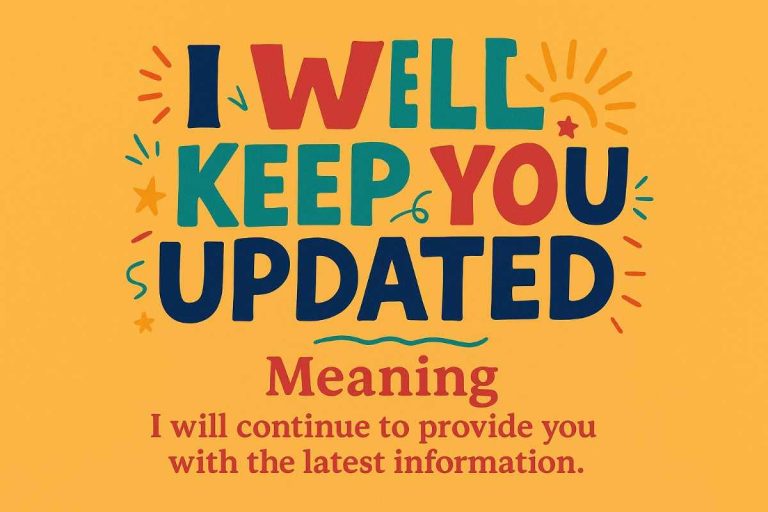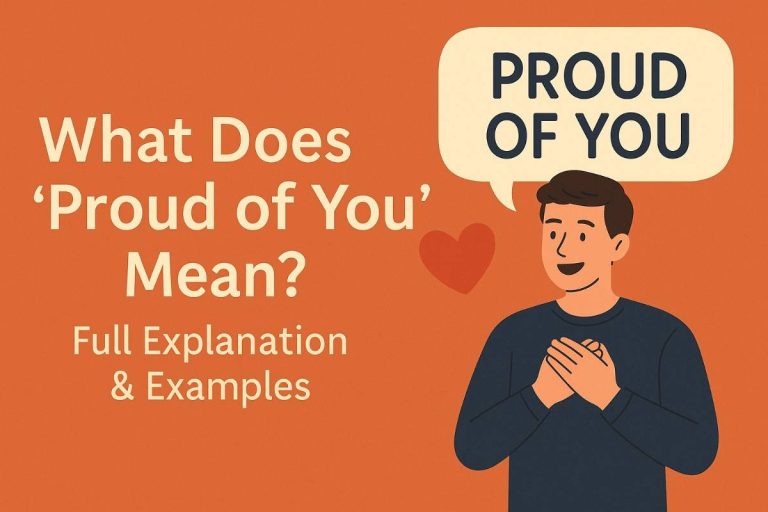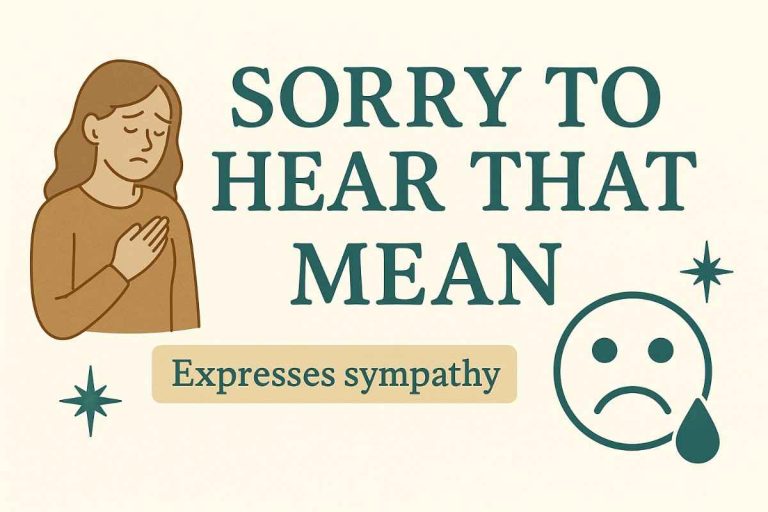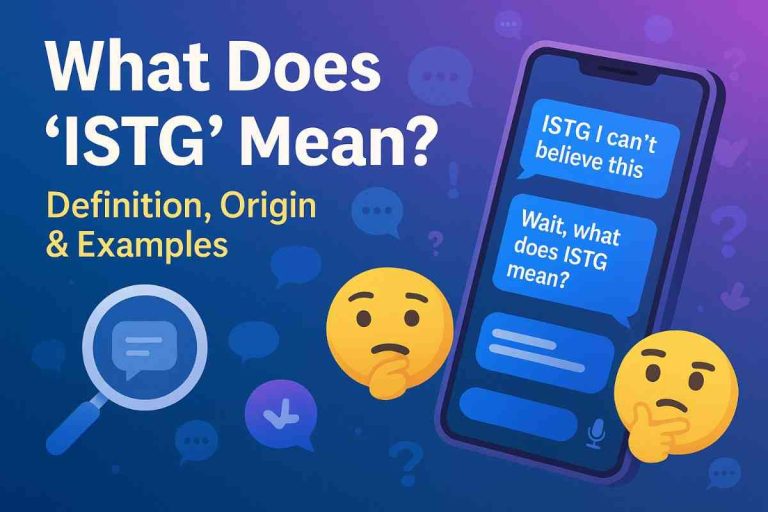What Does “According to” Mean? Top Synonyms to Use Instead
You hear it everywhere. News reporters use it. Teachers use it. Even your friends probably slip it into casual chat. The phrase “according to” is a small piece of language, but it does a lot of heavy lifting. So, what does it really mean? And why does it matter?
Let’s break it down in plain English — no fluff, just clarity.
What “According To” Really Means in Everyday Life
At its core, “according to” means someone else said it — not you. It shifts the source of the information to another person, group, or even a thing like a report or survey.
Here’s a simple example:
“According to my doctor, I need more sleep.”
That doesn’t mean you think you need more sleep. You’re saying your doctor thinks so. That’s the whole idea. You’re pointing to a source — not claiming it as your own opinion.
You can also use it with things that aren’t people:
“According to the weather app, it’s going to rain.”
You’re trusting the app. It’s where the info came from.
It’s that simple: “according to” shows where information comes from — and that it’s not coming from you directly.
Common Situations Where the Phrase Is Used
You’d be surprised how often this little phrase shows up. It fits into both serious and casual situations.
1. News and Reporting
You’ll hear this phrase all the time in journalism.
“According to police, the fire started around midnight.”
Why? Because news outlets often share what others said — not their own opinions. It adds a layer of credibility, and it keeps things neutral.
2. Everyday Conversations
People use it in regular chats too:
“According to Sarah, the new café downtown is amazing.”
That doesn’t mean you’ve tried it — you’re passing along someone else’s opinion.
3. School or Work Projects
If you’re writing a paper or giving a presentation, you might say:
“According to a study by Harvard University, screen time affects sleep.”
It shows you’ve done your homework. You’re citing a source.
4. Jokes and Sarcasm
And yes, sometimes it’s used in a tongue-in-cheek way:
“According to my cat, 5 a.m. is the perfect time for breakfast.”
You’re pretending the cat is the source — which adds humor.
Other Ways to Say “According To”
Now, “according to” is clear and common. But sometimes, you might want to mix it up. Here are a few other phrases that mean the same thing — or close to it:
Here’s a table with synonyms to say “According to”:
| Phrase | Context/Use |
|---|---|
| As stated by | Used when quoting or paraphrasing someone’s statement or writing. |
| As reported by | Commonly used in journalism or news-related contexts. |
| In the opinion of | Indicates someone’s perspective or viewpoint. |
| As mentioned by | Refers to something previously stated. |
| Based on | Used to refer to the foundation or source of information. |
| In accordance with | More formal, used for legal or official documents. |
| As per | Informal or semi-formal way to indicate a source or instruction. |
| In the words of | A more poetic or literary way to refer to someone’s direct speech. |
| According to the findings of | Used when referencing research or studies. |
| In the view of | Used when referencing a person’s perspective or outlook. |
| As indicated by | Refers to something signified or shown by a source. |
| On the authority of | Used when referencing an expert or official source. |
| As outlined by | Used to reference points made in a plan, proposal, or article. |
| In reference to | A general way to refer to information or material. |
| As inferred by | Indicates something deduced from the information provided. |
This list provides a variety of phrases depending on the formality and context of your writing.
Each version has its own tone. Some sound more formal. Some are more casual. But they all do something similar: they point to someone or something else as the source.
How “According To” Is Used in Daily Conversation
In daily speech, people often use “according to” to stay neutral. It’s a way to say, “Hey, don’t shoot the messenger.”
Think about this:
“According to your sister, you hate sushi.”
That sentence is careful. It doesn’t accuse anyone — it just reports what someone else said. It keeps things light. Or at least less personal.
Also, it helps avoid conflict. Imagine a work meeting:
“According to the client, the design needs more color.”
You’re not saying the design is bad. You’re quoting the client. It softens the blow.
So, in casual talk, “according to” often plays the role of a buffer. It lets you share info without owning it.
Also Read – No Step On Snek: What It Means and Why People Say It
Why “According To” Matters in Formal and Informal Writing
In writing, this phrase is more than a space-filler. It helps structure thoughts. It keeps your tone objective, especially when you’re reporting facts or opinions.
In formal writing — like essays, reports, or articles — using “according to” shows that you’ve done research. You’re backing up your ideas with outside sources.
For example:
“According to the World Health Organization, over 1 billion people suffer from high blood pressure.”
That’s solid. It adds weight. It tells the reader, “This isn’t just my opinion.”
In informal writing — like emails, blog posts, or texts — it still works well. It can make your point clear without sounding too forceful.
“According to the calendar, our meeting’s on Friday.”
Simple. Direct. Helpful.
And sometimes, it’s used just to add a bit of charm:
“According to my dog, belly rubs are a top priority.”
It’s not always about accuracy — sometimes it’s about tone.
Conclusion
So, what’s the deal with “according to”? It’s small but mighty. It helps you credit others, soften your tone, and add clarity to both speech and writing. Whether you’re quoting a study or joking about your pet, it has its place.
And honestly? The world runs better when we give credit where it’s due. That’s what “according to” helps us do — with grace, humor, or professionalism.
So next time you say it, take a second. Think about where the info came from. It’s a small move, but it shows thought — and that counts for a lot.







